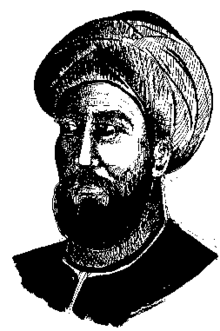Al-Zahrawi
| Abu al-Qasim al-Zahrawi | |
|---|---|
 |
|
| Born | 936 CE Medina Azahara, Al-Andalus (near present-day Córdoba, Spain) |
| Died | 1013 (aged 76–77) |
| Ethnicity | Arab |
| Era | Islamic Golden Age |
| Region | Al-Andalus, Caliphate of Córdoba |
| Religion | Islam |
| Notable idea(s) | Founder of modern surgical and medical instruments; Father of Surgery |
| Notable work(s) | Kitab al-Tasrif |
|
Influenced
|
|
Abū al-Qāsim Khalaf ibn al-‘Abbās al-Zahrāwī (936–1013), (Arabic: أبو القاسم خلف بن العباس الزهراوي), popularly known as Al-Zahrawi (الزهراوي), Latinised as Abulcasis (from Arabic Abū al-Qāsim), was an Arab Muslim physician and surgeon who lived in Al-Andalus. He is considered the greatest medieval surgeon to have appeared from the Islamic World, and has been described as the father of surgery. His greatest contribution to medicine is the Kitab al-Tasrif, a thirty-volume encyclopedia of medical practices. His pioneering contributions to the field of surgical procedures and instruments had an enormous impact in the East and West well into the modern period, where some of his discoveries are still applied in medicine to this day.
He was the first physician to describe an ectopic pregnancy, and the first physician to identify the hereditary nature of haemophilia.
Al-Zahrawi was born in the city El-Zahra, 8 kilometers northwest of Córdoba, Andalusia. The nisba (attributive title), Al-Ansari, suggests origin from the Medinian tribe of Al-Ansar.
He lived most of his life in Córdoba. It is also where he studied, taught and practiced medicine and surgery until shortly before his death in about 1013, two years after the sacking of El-Zahra.
Few details remain regarding his life, aside from his published work, due to the destruction of El-Zahra during later Castillian-Andalusian conflicts. His name first appears in the writings of Abu Muhammad bin Hazm (993 – 1064), who listed him among the greatest physicians of Moorish Spain. But we have the first detailed biography of al-Zahrawī from al-Ḥumaydī's Jadhwat al-Muqtabis (On Andalusian Savants), completed six decades after al-Zahrawi's death.
...
Wikipedia
